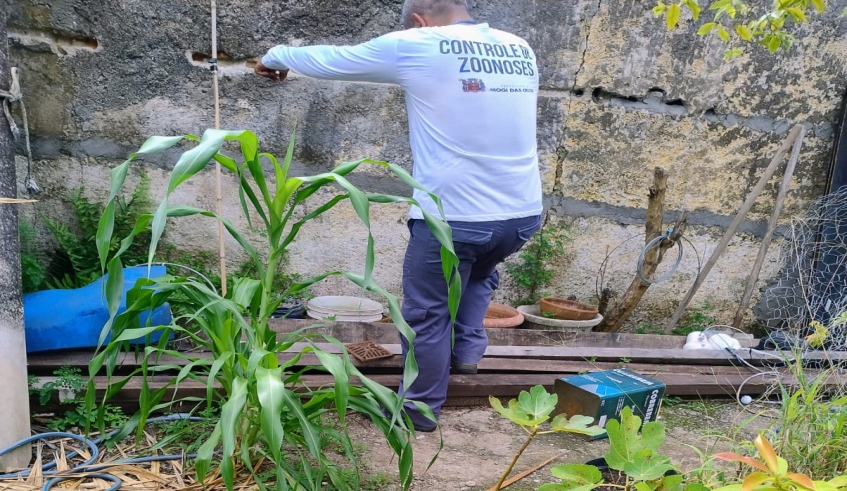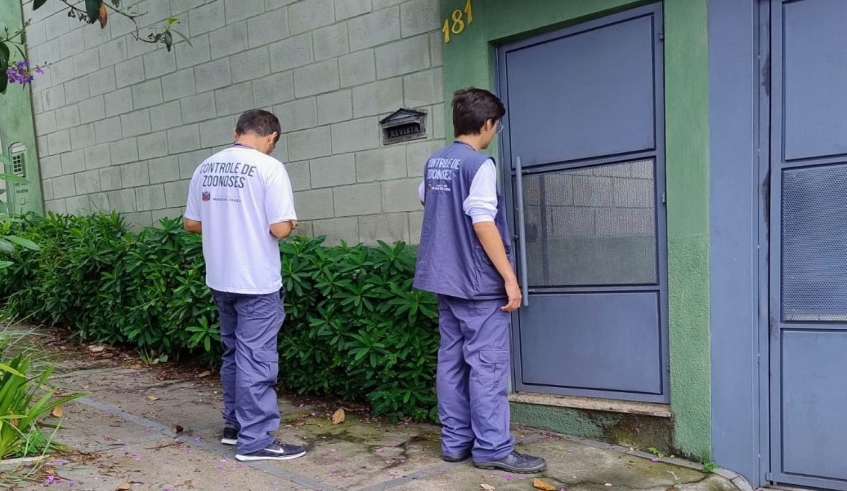Secretary of Health
The main problem is mobile containers, such as plastic and tires, which residents must remove themselves.


Mogi das Cruzes intensifies its guidance on the necessary care to prevent the Aedes aegypti mosquito during periods of heat and heavy rain.
The Arbovirus Prevention and Control Center has started house-to-house measures in Vila Nova União and surrounding areas


Mogi das Cruzes is intensifying guidance among the population on the care that must be maintained in the routine to prevent the Aedes aegypti mosquito during the period of heat and heavy rain, a favorable scenario for the infection and spread of dengue fever.
The goal is to remind Mogians of permanent measures such as removing plant dishes, taking care of pools, keeping water tanks very tightly closed and removing all containers or situations that allow stagnant water to accumulate. Guidelines are reinforced during home visits and inspections.
In the first three weeks of January alone, Mogi das Cruzes recorded 21 positive cases of dengue fever in several neighborhoods of the city. This number is practically equivalent to a third of the total cases recorded throughout last year, with 65 cases confirmed.
Dengue fever is a disease caused by a virus that is transmitted from a sick person to a healthy person through the bite of the Aedes aegypti mosquito, a mosquito found throughout the city. In addition to dengue, Aedes transmits other serious diseases such as chikungunya and Zika, and can breed in any condition that allows standing water to accumulate.
The main problem, according to the inspections conducted by the technical team, is mobile containers, such as plastic, tires and various containers that must be preventively removed by the residents themselves.
Since last week, the Center for the Prevention and Control of Deadly Viruses has intensified a series of measures in Vila Nova Uniao. House-to-house visits and training were conducted for community health agents and other professionals from the Family Health Program Unit on clinical management and risk identification.
The same work will continue in other neighborhoods where dengue cases have already been recorded this year, such as Villa Oliveira, Jardim Camposi, Villa Suesa, Alto Ipiranga, Jardim Nove de Julho, Centro, Parque Morumbi, Vila Nova Aparecida, Jundiapipa and Villa Sintra. And taboo.
Add
The Center for Arbovirus Prevention and Control has also begun assessing larval densities, with visits to 3,600 properties scheduled for January. The ADL is a sample that indicates which area of a municipality has the highest incidence of Aedes aegypti larvae, guiding specific strategies and actions.
During the visits, samples are collected from randomly selected properties in all areas of the city, a work that requires the support of residents in receiving and assisting technicians. It is important to remember that teams always operate in uniform and are identified by badge.
If in doubt, just call 4798-6785 / 4798-6799 / 4798-6917.

“Writer. Analyst. Avid travel maven. Devoted twitter guru. Unapologetic pop culture expert. General zombie enthusiast.”

